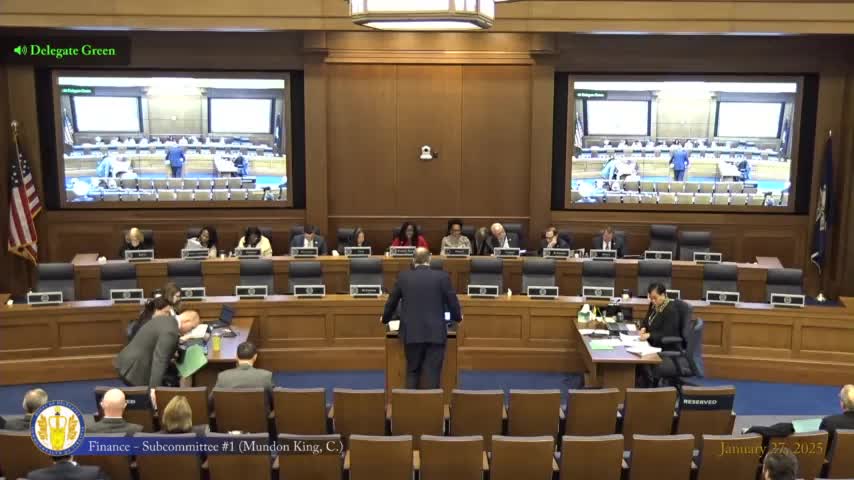Bill giving localities permissive authority to tax liquid nicotine (vape) products prompts implementation concerns
Get AI-powered insights, summaries, and transcripts
Subscribe
Summary
Delegate Green’s HB 2,488 (substitute) would permit localities—individually or via regional tax boards—to impose a tax on liquid nicotine/vape products, capping it at the lesser of 5¢ per milliliter or 10% of wholesale price; the committee adopted a substitute but witnesses warned about stamping, collection and public‑health tradeoffs.
Delegate Marcus Green brought a substitute to House Bill 2,488 to allow localities the option to levy a tax on liquid nicotine (vapor) products in a manner similar to existing cigarette taxes. The substitute added three elements: (1) a cap (not to exceed 5¢ per milliliter or 10% of wholesale price), (2) a delayed effective date to allow administrative preparations, and (3) explicit inclusion of regional cigarette‑tax boards that already collect cigarette tax revenue.
"My bill . . . would provide localities an option to levy liquid, nicotine or vape tax. Currently, localities are permitted to tax cigarettes. This bill creates parity between those two markets," Delegate Green said. He asked the Department of Taxation to convene a work group to develop a standard form for localities to use to implement and administer the collection.
Supporters included municipal finance offices and localities (Alexandria, Newport News, Chesapeake, James City County, York County) and local officials who said the measure gives localities an optional revenue tool. Sarah Graham Taylor for the City of Alexandria said the bill's permissive design — requiring an ordinance — would allow a community conversation and may be appropriate for some localities and not others.
Opponents focused on administrative and public‑health issues. Robert Melvin of the R Street Institute said a local vapor tax could discourage switching from combustible cigarettes to lower‑risk alternatives, which his organization studies as harm reduction policy. Wholesale and distribution groups, including the Virginia Wholesalers and Distributors Association and major wholesalers, raised practical concerns about collection and enforcement: unlike cigarettes, many vape products come in variable sizes and formats and cannot be stamped in the same way, raising the risk of tax avoidance or collection failure. "With traditional cigarettes, they're stamped. With vapor, it's a physical impossibility to stamp the various size of products that are put on the shelf," Jeff Smith said for the wholesalers.
The committee adopted the substitute before it. The substitute's delayed enactment and instruction to the Department of Taxation for a convened work group were intended to address implementation difficulties, but stakeholders asked for more time to work out collection mechanics. The transcript records the substitute being adopted by voice vote; subsequent actions (reporting to the full committee) are not recorded in the provided excerpt.
